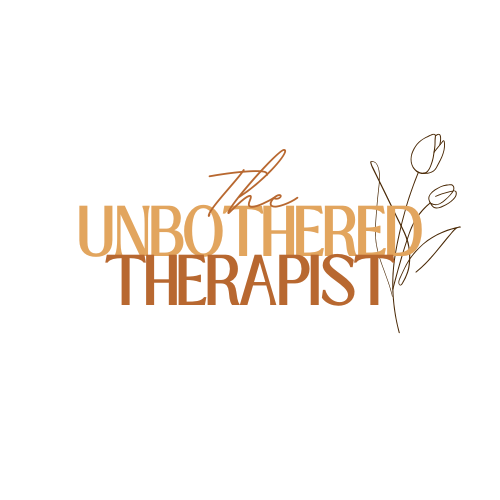Trauma-informed therapy in Gaithersburg, MD and the DMV area for high-capacity women of color and LGBTQIA+ folks ready to reclaim their boundaries.
Stop People-Pleasing and Start Honoring Your Voice
Have You Spent Your Life Trying Not to Disappoint Anyone—Except Yourself?
If you've been the strong one, the fixer, the go-to person everyone relies on—you might not even realize how much it's costing you.
You say “yes” even when you mean “no.” You avoid conflict to keep the peace. You put everyone else’s needs before your own. And you’re exhausted.
This isn’t a personality flaw—it’s a survival strategy. If you learned early on that love, safety, or approval came from being agreeable or putting others first, people-pleasing might have felt like your only option.
But now? You’re ready for something different. You’re ready to speak up without guilt. To set boundaries that actually hold. To feel safe saying no without spiraling into shame.
That’s where I come in.
Is This You?
You’re always the reliable one—but feel resentful, depleted, or invisible
You agree to things you don’t want to do just to avoid disappointing others
You struggle with guilt anytime you prioritize yourself
You leave conversations replaying what you “should have said”
You feel stuck in cycles of burnout, over-functioning, or resentment
If any of this sounds familiar, trauma-informed therapy can help you shift from fawning and people-pleasing to grounded self-advocacy.
Decolonizing Boundaries. Reclaiming Your Voice.
Why Trauma-Informed Therapy Helps Break People-Pleasing Cycles
Many traditional therapy models don’t address why it’s so hard to stop overgiving, fawning, or abandoning your own needs. Trauma-informed therapy is different.
In our work together, we’ll explore how your nervous system responds to conflict, criticism, or unmet expectations—and gently rewire those patterns so that assertiveness feels safe in your body, not just logical in your mind.
You’ll learn to:
Set boundaries that reflect your values, not your fear
Recognize when guilt or shame are trying to take the wheel
Express your needs without apologizing for them
Reclaim your time, energy, and emotional space
Common Focus Areas
-
Boundary-Setting & Assertiveness Training
Learn how to say no confidently and protect your energy.
Communicate your needs clearly without fear of rejection.
-
Overcoming Guilt & Self-Doubt
Reframe guilt as a natural response to change, not a reason to stop growing.
Build habits that prioritize self-worth over approval.
-
Confidence Building
Replace fear of confrontation with tools for calm, effective communication.
Develop a mindset rooted in self-respect and clarity.
-
Healing from Codependency
Untangle patterns of over-functioning in relationships.
Build relationships rooted in mutual respect and balance.
The Unbothered Approach to Boundaries & Assertiveness
You won’t be told to “just speak up” or “stop being so nice.” We go deeper than surface-level advice.
In this space, we’ll:
Build awareness of how people-pleasing is wired into your nervous system
Use body-based tools and EMDR to process the moments that taught you to shrink
Practice assertiveness that aligns with your culture, values, and energy
Redefine what it means to be “a good person”—without self-abandonment
This is care that meets you where you are: mentally, emotionally, and physically.

Ready to Reclaim Your Voice?
Boundaries don’t have to feel harsh. Assertiveness doesn’t have to feel like a betrayal. You can show up fully—without shrinking, fawning, or over-functioning to feel worthy.

FAQs on People Pleasing & Assertiveness
-
People-pleasing often stems from a fear of rejection, childhood conditioning, or trauma. Therapy helps you identify the root cause and develop tools to feel more confident asserting your needs.
-
Yes! Therapy teaches you to reframe guilt as a natural response to unlearning old habits. With practice, you’ll replace guilt with confidence and learn to prioritize self-care without shame.
-
Assertiveness is about expressing your thoughts and needs respectfully while aggression disregards others’ feelings. Therapy helps you find that balance so you can speak up without fear.
-
We’ll practice boundary-setting strategies and plan for conversations to prepare you for pushback. Therapy also helps you build emotional resilience when facing resistance.
-
Absolutely. Assertiveness is a learned skill, and therapy provides the tools and support you need to build confidence step-by-step.
Featured Blog:
Why You Struggle to Say No (And How to Reclaim Boundaries)
You want to say no. You know when something doesn’t feel okay. But at the moment, your body freezes, your voice softens, or you apologize before the thought is even out.
You leave conversations replaying your words. You do things you didn’t want to. You feel resentment, shame, or fear—sometimes right after you say “yes.”
If this sounds familiar, you’re not flawed. You’re responding to survival. And there’s a path forward to honoring your limits without erasing your boundaries.







